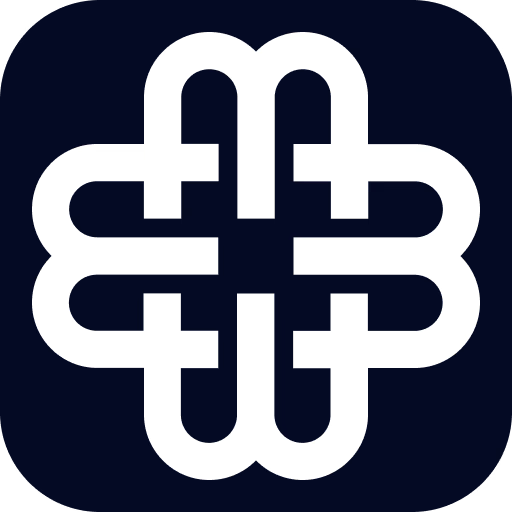Hi, I'm Gram
- Principal Software Engineer from Netherlands.
- Python, Go, Elixir, Rust, Web, Security.
- Passionate about my craft.
- Public speaker and teacher.
- A lot of Open Source.
- Constantly tinkering and experimenting.
- Always smarter than yesterday.
Experience

10. OurMind
Principal Software Engineer
2024-09 — now
- Build the Go-powered backend from scratch as the first employee.

9. Firefly Zero
Co-Founder
2024-03 — now
- Do what startup founders do: basically, everything.
- Write embedded firmware in Rust.
- Write all software and SDKs in Go, Python, C, C++, Zig, JS, etc.
- Do marketing, build community, hire contractors, plan work.

8. Sendcloud
Principal Software Engineer
2022-08 — 2024-08
- Maintain and empower the Django monolith
- Plan and lead the way to microservices
- Lead lots of initiatives about code safety and maintainability
- Design and optimize high-load components of the system
Projects
TextDistance
Compute the distance between sequences. 30+ algorithms, pure python implementation, common interface, optional external libs usage.
deal
Design by contract for Python. Write bug-free code. Add a few decorators, get static analysis and tests for free.
itj.orsinium.dev
Decentralized job aggregator written in Elixir (Phoenix Framework).
textdistance.rs
Rust library to compare strings (or any sequences). A younger sibling of Python textdistance.
More!
I have 155 Open Source projects. Check them out at orsinium.dev/projects.html.
Languages
Python
This is my favorite language, I've been in it since version 3.4 (2014). I know the source code of almost all stdlib, have many Python-based Open Source projects and public talks, always can pick the best library for any task.
Go
I'm quite proficient with Go. I reach to it when I need a good performance: games, small systems (thanks to TinyGo), CLI tools, and small but important APIs. Oh, and of course I have some open-source projects on Go. I work with Go since version 1.11 (2018).
Elixir
I enjoy Elixir and believe it's the best functional language. I know some good of chunk of Erlang, have experience with a basic web app on Phoenix with LiveView, understand Erlang concurrency, know some parts of OTP, and eager to dive deeper into this beautiful ecosystem.
HTML & CSS
I'm pretty fluent with HTML, CSS, and even the quirks of WebAPI. I might miss some modern features like flexbox, though. Mostly, because Bootstrap is sufficient for my projects and it abstracts away some markup complexity.
Frontend (JS)
With modern JS I'm less familiar. Mostly, I use for my projects AlpineJS, WASM, and LiveView. If you need a frontend developer, it's not me. But if you need from me just a good understanding of your frontend, I can easily crack it.
More!
I believe that every programming language has some beautiful ideas, and I like learning new ones. I have experience with Rust, Haskell, Gleam, Idris, RPython, Pony, Nim, Crystal, Clojure, Scala, JS, Ruby, and many other languages. I'm not afraid to read and fix code written in any language.
Hard skills
Distributed Systems
Distributed systems are hard because of the very nature of our world (damn you, speed of light!), and I enjoy cracking this complexity. I'm familiar with fundamental problems, design patterns, algorithms, formal verification techniques and tools (TLA+ and Alloy 6), and just in general can design reliable solutions and consider all possible corner cases.
Quality Assurance
Automated testing (unit, integration, acceptance, regression), static code analysis, formal verification, contract programming, mutation tests, and type theory. I like to push the boundaries of my code to see how it performs in extreme situations, to find interesting corner cases, and to dive into the math behind programming.
Security
I have an Information Security red diploma, interested in practical aspects of security, have many publications on different topics, visited some security conferences. I was a founder and leader of the CTF team that has gotten 6th place in an international contest (alert1 team). In the Smena team I've made global security audit, fixed many security issues, integrated some security systems like brute force protection and intrusion detection.
DS and ML
At the university, I worked in the linguistics department where I researched language and text influence, adopted Claude Shannon's information theory to natural languages. In Cindicator I wrote simple trading strategies that get information from crypto exchanges and make predictions about cryptocurrencies prices. In my free time I learn Machine Learning and build different cool models. See my projects for examples.
Software Architecture
I know design patterns, antipatterns, refactoring techniques, 12 factors, SOLID principles. In Cindicator, I was the architect for the trading platform from the first lines of code to the successful launch.
Linux
I live in Linux for 8 years and can solve any issue from a terminal. I've worked with different Linux distros (Ubuntu, Debian, CentOS), set up physical servers, VPS, Raspberry Pi, Orange Pi.
Logic
I'm familiar with formal logic basics, boolean logic, math logic, a little bit with proof theory. deal is my experiment on how good you can prove code automatically, without writing proofs at all.
Math
I math! I watch Numberphile, solve riddles and equations for fun, know how to apply math in my work to make code faster and even nicer.